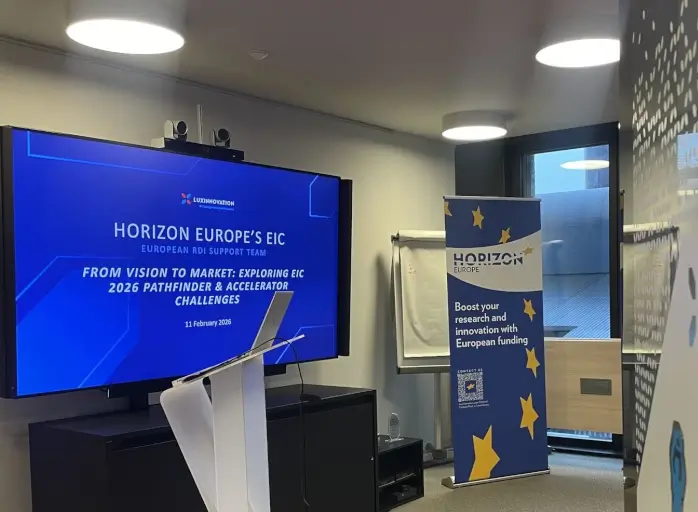

Why digital skills matter more than ever
The Digital Skills Maturity Assessment helps companies evaluate their staff’s digital capabilities, aligned with both planned and emerging technological innovation.
 Jean-Michel Gaudron
Jean-Michel Gaudron
In today’s rapidly evolving industrial landscape, the ability to adapt, innovate and stay competitive relies heavily on one essential factor: people. As factories, production lines and supply chains become increasingly digitised, companies must ensure that their workforce has the digital capabilities required to meet today’s challenges – and seize tomorrow’s opportunities.
At the same time, it is crucial for companies to have a clear picture of the human potential within their workforce – even beyond their employees’ current roles.
Without the right skills in place, and without a clear understanding of those skills at the organisational level, even the most ambitious digital transformation strategies can fall short. That’s why the Luxembourg Digital Innovation Hub (L-DIH) offers a powerful solution to support businesses through this shift: the Digital Skills Maturity Assessment (DSMA).
A high-value service at no cost
The DSMA is a comprehensive, fully subsidised service that assesses both the digital readiness of a workforce and the overall maturity of an organisation’s digital competencies.
Developed by the University of Luxembourg Competence Centre as part of the L-DIH EU project, the DSMA targets industrial and manufacturing SMEs based in Luxembourg. It combines quantitative and qualitative methods. “The DSMA is customised to the company’s business profile, which brings it undeniable added value,” explains Mickael Desloges, Senior Advisor ‑ Assessments & Roadmaps at Luxinnovation. “We invite a selected group of employees to complete a 20-minute 360° online survey. Key staff participate in in-depth interviews and tailored workshops.”
This process provides a detailed overview of a company’s existing capabilities and highlights the skills that will be needed moving forward. The outcome is a practical roadmap with tailored recommendations for upskilling, training and strategic workforce development.
Boosting productivity through smarter use of technology
“Understanding companies’ digital strengths and gaps goes hand in hand with understanding the capabilities of the workforce. Both are first steps toward meaningful progress”, explains Dr Thomas Benz, Training Specialist at the University of Luxembourg. “By conducting a DSMA, a company can benefit from a clear picture of its employees’ current digital skill levels, identify critical digital skill gaps and pinpoint the next area for development for each individual or team in line with strategic business goals.”
This allows organisations to boost productivity through smarter use of technology and to design more effective training plans and career development strategies.
Thanks to the financial support from the European Commission and the Luxembourg Ministry of the Economy, the DSMA service is 100% free of charge for eligible companies. “It’s an opportunity to gain deep insights and actionable outcomes – with no financial barrier,” says Mr Desloges.
The Digital Skills Maturity Assessment service is available to companies that manufacture, assemble or transform products in Luxembourg and are part of a group with fewer than 3,000 employees worldwide.
“Whether a company in launching its first industry 4.0 project or scaling up its digital investments, the Digital Skills Maturity Assessment is a true launchpad. It’s more than a survey – it’s a smart, strategic investment in people, processes and the future,” concludes Dr Benz.







